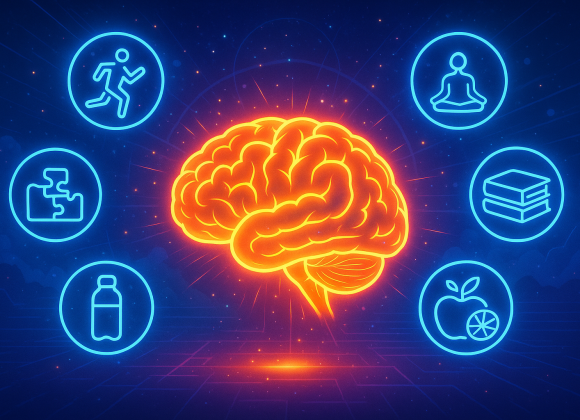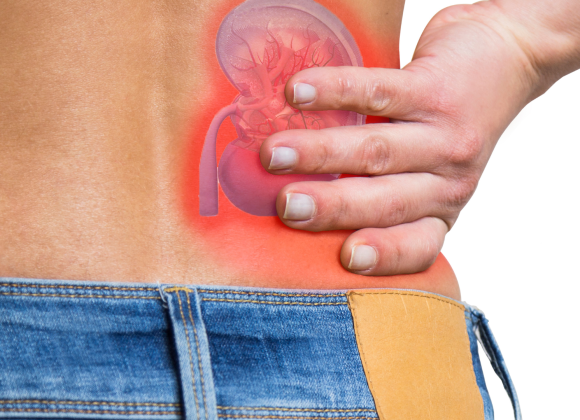What Exactly is OCD?
Obsessive-compulsive disorder (OCD) is a chronic condition marked by frequent unwanted thoughts (obsessions) and repetitive behaviors (compulsions). These intrusive thoughts trigger anxiety, uncertainty, or panic, trapping individuals in a cycle that disrupts their daily lives. Unlike occasional double-checking or casual use of the term “obsessed,” OCD is more extreme—consuming hours each day with distressing, uncontrollable patterns. People with OCD don’t enjoy their compulsions, but they feel driven to perform them to ease their anxiety. Without treatment, OCD can interfere with work, relationships, and everyday activities. While symptoms may fluctuate over time, the disorder often persists long-term.
Who does OCD affect?
Obsessive-compulsive disorder (OCD) can affect people of all ages, genders, and backgrounds. It often begins in childhood, adolescence, or early adulthood, with symptoms typically appearing by age 19 in many cases. However, OCD can also develop later in life.
While it affects both men and women, studies suggest that males are more likely to develop it in childhood, whereas females may develop it slightly later. OCD does not discriminate based on culture or socioeconomic status—it can impact anyone.
If left untreated, OCD can significantly disrupt daily life, relationships, and work or school performance. However, with proper treatment (such as therapy and medication), many people manage their symptoms effectively.
Symptoms of OCD – Obsessions
Obsessions in OCD are intense, irrational fears or worries that go beyond normal everyday concerns. Common obsessions include:
- Fear of germs, contamination, or harmful substances
- Extreme anxiety about harm, illness, or death affecting oneself or others
- Unwanted violent, sexual, or disturbing thoughts
- A strong need for symmetry, order, or exactness
- Excessive focus on morality, religion, or health
- An overwhelming urge to remember or know things
These thoughts can be persistent or triggered by everyday objects, sounds, or situations. The fear often spreads—for example, anxiety about a chemical might extend to anything related to it. Obsessions resist logic and can cause emotions ranging from discomfort to full-blown panic. People with OCD often seek control or certainty to ease their distress.
Symptoms of OCD – Compulsions
Compulsions in OCD are repetitive behaviors (actions) or mental acts (thoughts) done to reduce anxiety caused by obsessions. They often follow strict rules or patterns, like excessive washing, checking, counting, or rearranging things. People may also repeat words, seek reassurance, or replace “bad” thoughts with “good” ones.
While compulsions temporarily ease anxiety, they reinforce the OCD cycle—making obsessions feel more real and anxiety return stronger. Over time, these rituals take over daily life, trapping the person in a loop of fear and relief.

How OCD Traps You in a Cycle
Everyone has unwanted thoughts sometimes, but most people let them pass. With OCD, these intrusive thoughts trigger doubt and anxiety—making you fixate on them, as if they hold meaning. The more you struggle against them, the stronger they become.
To cope, you turn to compulsions—actions or mental rituals that temporarily ease distress. At first, they seem helpful (“If I wash my hands, the fear goes away”). But the relief fades fast, and the obsession returns, often worse. So you repeat the compulsion, harder this time.

Soon, you’re stuck: obsessions fuel compulsions, and compulsions feed obsessions. What started as a small worry now dominates your time and energy. The cycle tricks you into believing rituals are necessary—but they only strengthen OCD’s grip. Breaking free requires resisting compulsions, not the thoughts themselves.
How do I take care of myself if I have OCD?
In addition to professional treatment, lifestyle changes and self-care can help reduce OCD symptoms. Helpful habits include:
- Prioritizing sleep to improve mental resilience
- Staying active through regular exercise
- Eating nutritious meals to support brain health
- Connecting with supportive friends and family
- Using relaxation methods like meditation, yoga, or deep breathing
- Joining OCD support groups (online or in-person) for shared experiences
These practices can complement medical treatment by lowering stress and improving overall well-being.
Potential Cause of OCD
OCD may develop due to a mix of personal experiences and biological factors:
Psychological & Environmental Triggers
- Traumatic experiences (abuse, bullying, discrimination) can lead to using compulsions to cope with anxiety.
- Learned behaviors from family members with similar anxiety patterns.
- High stress or major life changes (like pregnancy) may trigger or worsen symptoms (perinatal OCD is a specific example).

Biological Factors
- Brain chemistry: Low serotonin levels may play a role, but it’s unclear if this is a cause or effect.
- Genetics & brain function: Some studies suggest a genetic link or differences in brain activity, but no definitive cause has been identified.
While the exact cause remains uncertain, OCD likely results from a combination of these factors. Therapy and medication can help manage symptoms effectively.
You can read more about the causes of OCD with OCD UK. (🔗)
OCD Linked to Infections (PANDAS Theory)
Research suggests that in some children, OCD symptoms can be triggered by streptococcal infections (like strep throat). This is known as PANDAS (Pediatric Autoimmune Neuropsychiatric Disorders Associated with Streptococcal Infections). (🔗)
- How it happens: The immune system produces antibodies to fight the infection, but these may mistakenly attack the basal ganglia (a brain region involved in movement and habit formation), leading to sudden OCD symptoms.
- Key features: Symptoms appear rapidly (within 1–2 weeks) and may worsen with repeat infections.
How it happens: The immune system produces antibodies to fight the infection, but these may mistakenly attack the basal ganglia (a brain region involved in movement and habit formation), leading to sudden OCD symptoms.
Key features: Symptoms appear rapidly (within 1–2 weeks) and may worsen with repeat infections.
- Controversy: While early studies supported this link, later research (2004) found no clear evidence that recurrent infections worsen OCD.
How is OCD Diagnosed?
There’s no lab test for OCD—diagnosis is based on a detailed evaluation by a mental health professional. They assess your symptoms, medical history, and mental health background using the DSM-5 criteria.
Key diagnostic criteria for OCD include:
- Obsessions, compulsions, or both that feel uncontrollable.
- These thoughts/behaviors take up significant time (more than 1 hour per day).
- They cause distress or disrupt daily life (work, relationships, or routines).
- Symptoms aren’t due to drugs, medication, or another medical condition.
- They can’t be better explained by a different mental disorder (e.g., anxiety or an eating disorder).
A provider will rule out other conditions before confirming an OCD diagnosis. Early diagnosis helps in managing symptoms effectively.
How is OCD Treated?
OCD is typically managed with therapy and medication, though severe cases may require advanced treatments like Transcranial Magnetic Stimulation (TMS).
Psychotherapy (Talk Therapy)
Therapy helps change unhealthy thoughts and behaviors. Effective types include:
- Cognitive Behavioral Therapy (CBT): Challenges negative thoughts and replaces compulsions with healthier coping strategies.
- Exposure & Response Prevention (ERP): Gradually exposes you to feared triggers while resisting compulsions, teaching that anxiety fades naturally.
- Acceptance & Commitment Therapy (ACT): Helps accept intrusive thoughts without letting them control actions.
- Mindfulness & Relaxation: Meditation and stress-reduction techniques can ease symptoms.

Medication
Antidepressants (like SSRIs) are commonly prescribed at higher doses for OCD, including:
- Fluoxetine
- Fluvoxamine
- Paroxetine
- Sertraline
It may take 8–12 weeks for full effects. Combining therapy and medication often provides the best results.
Can OCD Be Prevented?
There’s no sure way to prevent OCD, but early intervention can help reduce its severity. If you notice persistent obsessive thoughts or compulsive behaviors:
- Seek help early: Therapy (like CBT/ERP) can stop symptoms from worsening.
- Manage stress: Anxiety can trigger OCD tendencies.
- Avoid avoidance: Facing fears (safely) prevents reinforcing compulsions.
- Stay mentally healthy: Good sleep, exercise, and social support help resilience.
While OCD can’t always be prevented, proper treatment and coping strategies can control symptoms effectively.
FAQ
FAQ 1: How is OCD different from normal habits?
OCD involves intense, unwanted thoughts and behaviors that feel uncontrollable and cause significant distress. Unlike normal habits, OCD symptoms take up excessive time (often over an hour daily), interfere with daily life, and create a cycle of anxiety that worsens without treatment.
FAQ 2: Is there a cure for OCD?
While OCD is a chronic condition, it can be effectively managed. Treatment like therapy (especially CBT and ERP) and medication (such as SSRIs) helps most people reduce symptoms significantly. Early intervention and consistent care offer the best chance for long-term improvement and a better quality of life.




